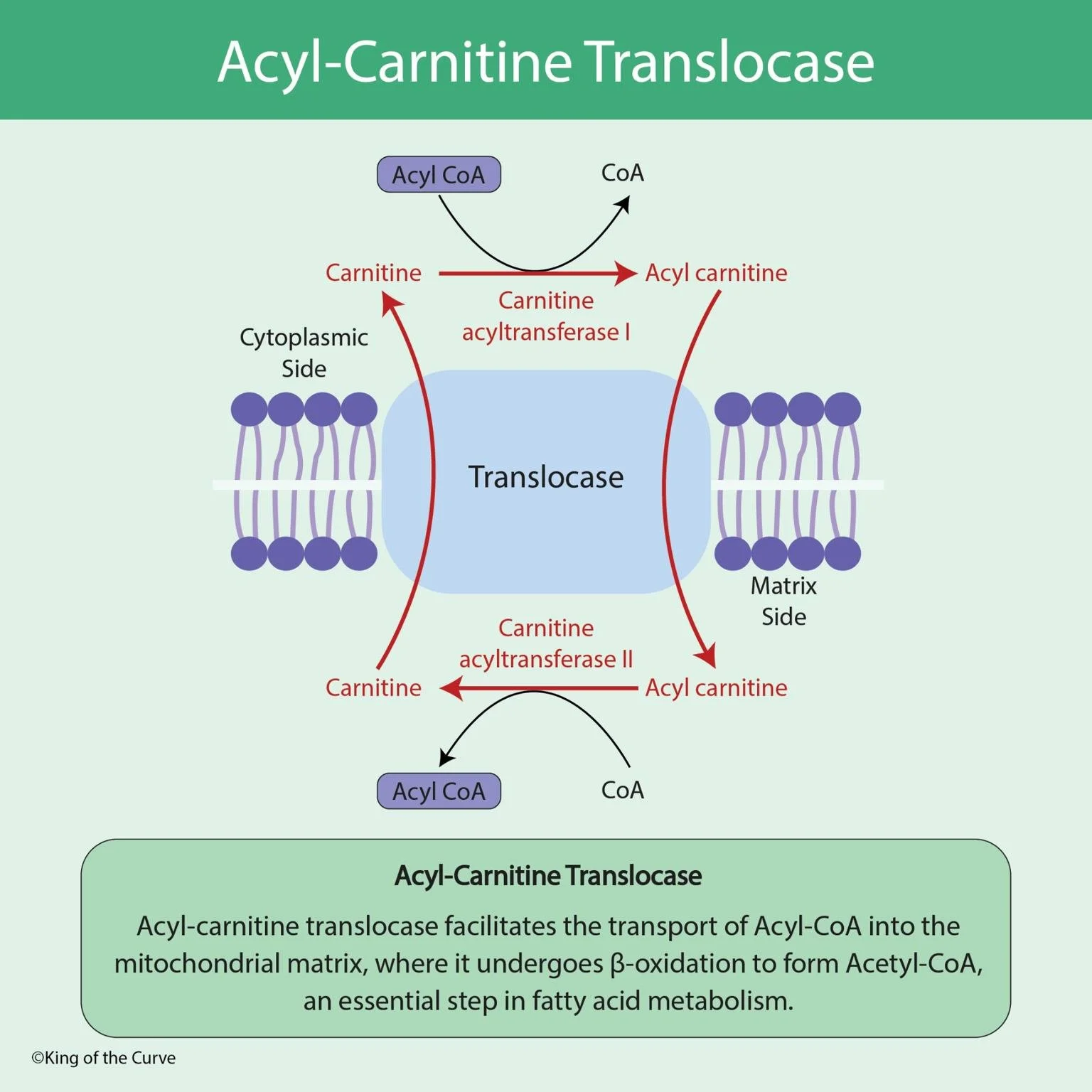🧠 Acyl-Carnitine Translocase: A Key Player in Fatty Acid Metabolism
Efficient energy production during fasting or prolonged exercise depends heavily on the breakdown of fatty acids. At the heart of this process is acyl-carnitine translocase, a critical membrane transport protein embedded in the inner mitochondrial membrane. For MCAT students, understanding this system is vital, as it connects biochemical transport with β-oxidation, a high-yield exam topic.
🔁 The Carnitine Shuttle System: Step-by-Step Breakdown
Fatty acids first need to be activated in the cytoplasm as Acyl-CoA, but this molecule cannot directly cross the inner mitochondrial membrane. Here’s how the carnitine shuttle, involving acyl-carnitine translocase, solves this transport issue:
Carnitine Acyltransferase I (CPT I) – Located on the outer mitochondrial membrane, CPT I converts Acyl-CoA into Acyl-carnitine by replacing CoA with carnitine.
Translocase (Acyl-Carnitine Translocase) – This protein shuttles Acyl-carnitine across the inner mitochondrial membrane into the mitochondrial matrix.
Carnitine Acyltransferase II (CPT II) – Found on the matrix side, CPT II reconverts Acyl-carnitine back to Acyl-CoA, releasing carnitine to be recycled.
β-Oxidation – The Acyl-CoA now undergoes β-oxidation to produce acetyl-CoA, NADH, and FADH₂—key substrates for the citric acid cycle and ATP generation.
⚠️ Clinical Relevance
Deficiencies in any component of the carnitine shuttle—especially acyl-carnitine translocase deficiency—can lead to serious metabolic disorders like:
Hypoketotic hypoglycemia
Muscle weakness
Lethargy and liver dysfunction during fasting
MCAT questions often ask students to predict the metabolic consequences of such enzyme deficiencies or identify where transport is disrupted.
🧪 MCAT Strategy Tip
If you’re asked how long-chain fatty acids enter mitochondria, always think:
“Carnitine shuttle = CPT I → Translocase → CPT II”
This sequence is a favorite in passage-based and standalone MCAT questions.
📌 Quick Recap
| Component | Location | Function |
|---|---|---|
| CPT I | Outer membrane | Forms acyl-carnitine |
| Translocase | Inner membrane | Transports acyl-carnitine |
| CPT II | Matrix side | Regenerates acyl-CoA |
Frequently Asked Questions (FAQs)
-
Aim for 4-6 focused hours, ensuring you incorporate breaks to avoid burnout.
-
Practice mindfulness techniques, take practice exams under realistic conditions, and maintain a balanced lifestyle.
-
Set short-term goals, seek support from mentors, and reward yourself for small achievements.
-
Regular exercise improves focus, reduces stress, and enhances overall mental clarity.
-
KOTC offers personalized learning tools, gamification features, and adaptive question banks to help students stay on track without burnout.


